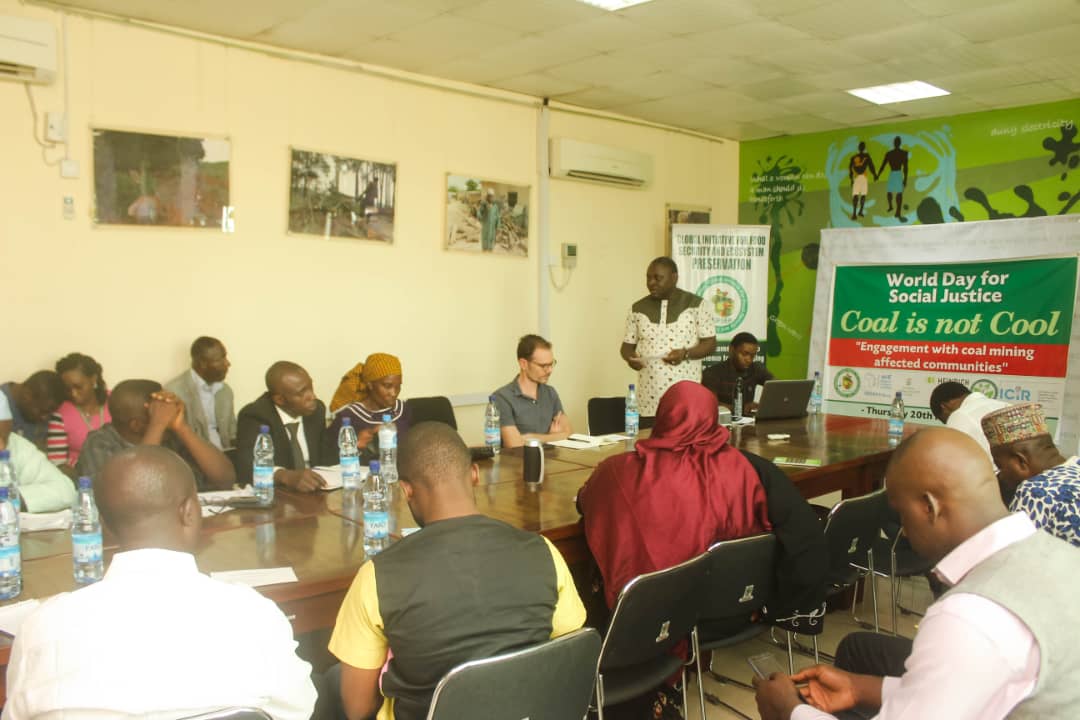GIFSEP Empowers Environmental Stewards in Secondary Schools in Nigeria
“Good habits formed at youth make the difference” - Aristotle.
In recognition of this, the Global Initiative for Food Security and Ecosystem Preservation (GIFSEP) is undertaking a project targeted at building the capacity of students and teachers to address Climate Change primarily by promoting environmental stewardship through behavioural change and skills in renewable energy and waste management.
The Project whose implementation began in November 2017 targets Senior Secondary Schools in the Federal Capital Territory (FCT), Nigeria. It is being implemented under the supervision of the FCT Secondary Education Board and funded by the United Nations Development Programme's Global Environmental Facility Small Grants Programme.
Thus far, activities carried out have included training workshops and school visitations.
The project has equipped students and teachers through numerous trainings on climate change, renewable energy and waste management to address environmental challenges. Through our support, the students have been able to establish environmental clubs in their schools which now serves as the primary vehicle for taking climate action in their respective schools. The Capacity Building of Students to address climate change project, has received numerous positive commendations from the Secondary Education Board, FCT Schools management, teachers and students and more. Consequently, the project has been able to secure the commitment of teachers to raise a generation of green champions in their schools. Also, the students have pledged to the good environmental stewards.
Only recently, the GIFSEP team visited schools in FCT-Nigeria to officially establish new environmental clubs in Schools while also encouraging pre-existing environmental clubs to continue to take definite climate action. Overall, the students, teachers and the school management show great enthusiasm towards the project and have all committed to be ambassadors of the environment.
As a team, we are glad that we were able to put smiles on the faces of students and teachers this year in spite of the many challenges that came along with the COVID-19 pandemic.
By Ogho Udoko and Joseph Ibrahim
GIFSEP, Global Initiative on Food and Ecosytem Preservation
People of Onupi and Nigeria do not need coal
“I want the Federal Government to intercede for us so our women won't experience miscarriage again". "If the government was providing social amenities to community members, then we would have never accepted the destructive coal mining activities". Those are words of respectively Mrs Agagwu Rachel and Mr Alfa Stephen, the chairman of Onupi Coal Committee when attending the civil society meeting organized by GIFSEP and partners like International Center for Investigative Reporting (ICIR), Heinrich Boll Foundation, Climate and Sustainable Development Network and Global Rights to mark World Social Justice Day.
The meeting was an opportunity for community leaders and civil society groups to strategize on the way forward in ensuring the voices of the community members in both Kogi and Gombe states are heard and to advocate for a coal-free society that keeps social justice and safety at the forefront.

The gathering was inspired by a research GIFSEP did last year to ascertain the status of coal mining and to identify the actors and financiers of coal mining in Nigeria. The research carried out by the International Center for Investigative Reporting (ICIR) in Kogi and Gombe states with support from 350.org was a response to the shift in fossil fuel investment caused by Nigeria’s yawning gap in power generation and supply, which prompted many stakeholders including the members of the National Assembly to demand coal-powered stations.
This research revealed serious troubling impacts local communities are now confronted due to the activities of Dangote coal mine. These impacts include the destruction of water sources contamination of alternative borehole sources, health issues like high rates of miscarriage. More detailed information about the research’s findings can be viewed here.
Community members of Kogi and Gombe states alongside others in Nigeria intend to continue raising their voices to ensure their right to a clean and healthy environment filled with sustainable prosperity. According to participants, the meeting was just the beginning of the journey towards a coal-free Onupi and Nigeria.

